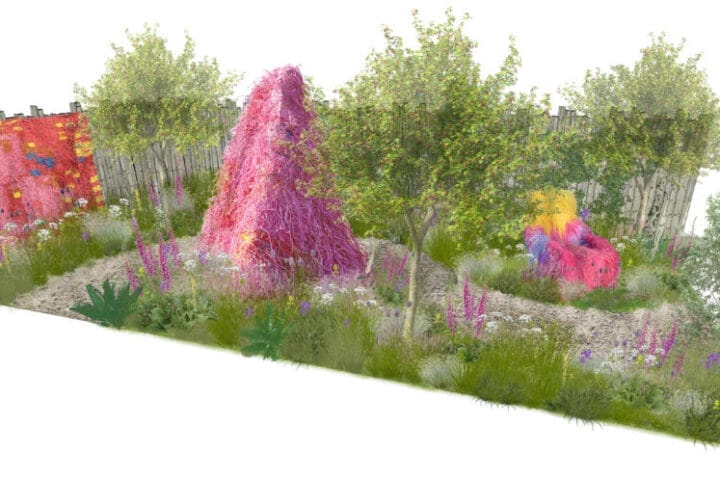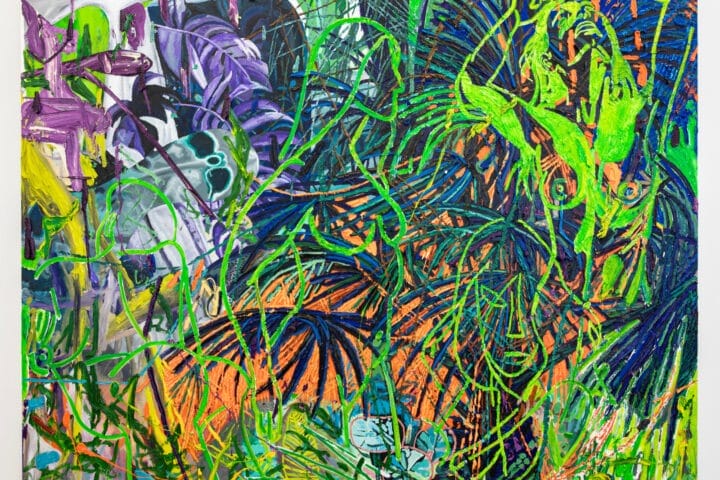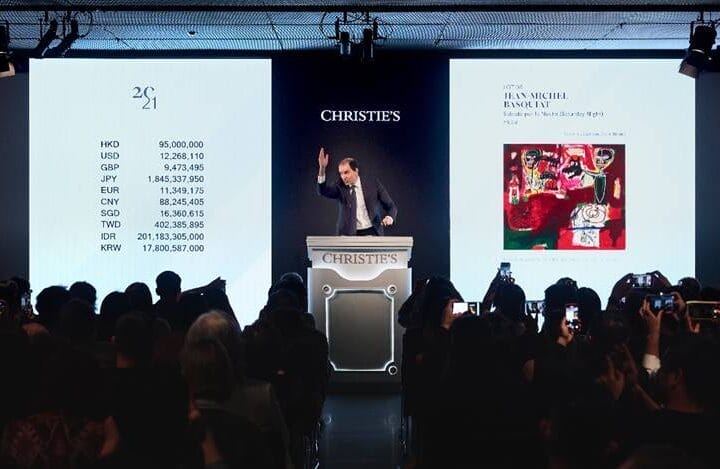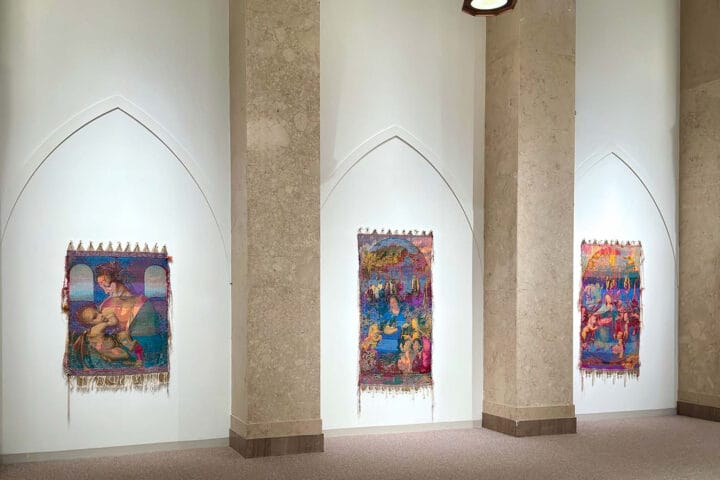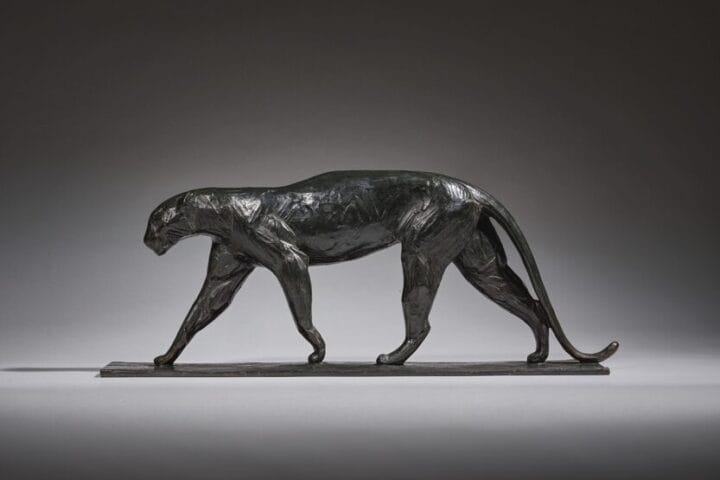“I never stop and I never return to a material or a technique. Everything happens simultaneously and never ends the ebb and flow of material and gesture, which is the essence of the practice. Painting is called a practice because that is what we are doing – practicing for the next thing that we will do, the continuation of all that we hope the work at present will embody, and move along the project of that spark that ignites our interest and our imagination.
— Julian Schnabel
The paintings are the paintings and everything else is everything else.”
Vito Schnabel Gallery is pleased to present Julian Schnabel: Predominantly Natural Forms, Mexico, 2022, an exhibition featuring four new large- scale velvet paintings by the artist. The exhibition will be on view at Vito Schnabel Gallery’s 43 Clarkson Street location from September 10 through October 22, 2022.
Schnabel’s embrace of unconventional materials and exploration of varied pictorial surfaces have long defined his acclaimed practice, which extends beyond painting to include sculpture and film. He approaches the world in a sensorial way, locating images, emotions, and ideas that impregnate the materials and surfaces of his paintings.
The artist first began working with velvet in 1980, producing numerous works with the material over the following decades. In his latest paintings on view in the exhibition, primordial anthropomorphic forms anchor four lustrous earth-toned compositions. Conversing with narrative fragments that hint at landscape– from rippling waters to rugged summits, deep canyons, and the horizon in the distance– the biomorphic shapes Schnabel maps out in paint are powerful expressions that evoke a sense of evolution, yearning, and vitality.
The velvet that Schnabel selects for his canvases, in shades of moss, sandy apricot and deep eggplant, are imbued with a weight and history of their own. As pristine factory-produced objects, the cut pieces of velvet here relinquish their original color to the makeup of the whole image. Acting as both a conveyor and receiver of meaning, the velvet surface brings the world with it, while opening itself up to the artist’s painterly gestures. Reacting to and confronting the material, Schnabel permeates each composition with a compelling dissonance between the dense silk pile of smooth velvet and the layered, impasto surfaces bearing his pigments.
Over the course of his five-decade practice, Schnabel has developed a distinctive visual language drawn from personal narrative– a response to his surroundings and to serendipitous encounters with objects or ideas that later emerge in his exploration of his painted reality. When thinking about these new works, Schnabel assimilates the velvet into his sense of other materials he has used in the past in Mexico, like tarps from a fruit stand or the faded green ropes used to attach truck tarps to tractor trailers in 1985, making drawings on the material’s surface.
The four paintings in Predominately Natural Forms, Mexico, 2022 were created in April in Schnabel’s outdoor studio in Mexico. Working in the remote jungle, he laid his sheets of velvet down in the dirt, allowing the material to be confronted by nature and altered by its forces. Employing modeling paste on velvet and then layering spray paint and oil, Schnabel created alluring, fractured, and complex surfaces, where the paint appears to inhabit a different pictorial space.
Schnabel’s relationship to Mexico is storied. He moved to Texas as a teenager and lived along the Mexican border. That period has exerted a profound influence upon his practice. From the mid-‘60s he has traveled and surfed in Mexico. He continues to paint in this place from which he has absorbed a myriad of atmospheric experiences and collected a lifetime of memories, as well as the influence of traditions such as ex-voto painting. In the exhibition, the work Natural Forms Before the Sun Comes up in Samba’s Boat (2022) alludes to a memory fixed deep in the artist’s mind. The painting evokes a palpable sense of a habitual voyage and sublime awakening that for Schnabel was no less exhilarating or miraculous despite its everyday routine: in the blackness of a morning before sunrise, he journeyed in boat, guided by a local helmsman, to the Mexican coast, where he surfed in the sea at dawn.
In a similar manner, Schnabel’s other paintings on view reference facets of nature– the beach, the fountain of youth, the Sierra Madres– that seem to express an infinite gratitude for the power these natural forces imprint on human consciousness.
About the artist
Julian Schnabel was born in New York City in 1951. He attended the University of Houston from 1969 to 1973, receiving a BFA, and returned to New York to participate in the Independent Study Program at the Whitney Museum of American Art and graduated from the program in 1974.
Since his first solo exhibition at the Contemporary Arts Museum Houston in 1976 his paintings, sculptures, and works on paper have been the subject of numerous exhibitions: Kunsthalle Basel, 1981; Stedelijk Museum Amsterdam, 1982; Tate Gallery, London, 1982; Los Angeles County Museum of Art, 1982; Whitechapel Gallery, London, 1986; Kunsthalle Düsseldorf, Germany, 1987; Centre Georges Pompidou, Paris, 1987; Whitney Museum of American Art, New York, 1987–1988; San Francisco Museum of Modern Art, 1988; Museum of Fine Arts, Houston, 1988; Museum für Gegenwartskunst, Basel, 1989; Musée d’art contemporain de Nîmes, France, 1989–1990; Staatliche Graphische Sammlung München, Munich, 1990; Palais des Beaux-Arts, Brussels, 1990; The Fruitmarket Gallery, Edinburgh, 1990; Museum of Contemporary Art Chicago, 1990; Maison Carré, Nîmes, 1990; Museo de Monterrey, Mexico, 1994; Fundació Joan Miró, Barcelona, 1995; Galleria d’Arte Moderna di Bologna, Italy, 1996–1997; Schirn Kunsthalle Frankfurt, 2004; Museo Nacional Centro de Arte Reina Sofía, Madrid, 2004; Palazzo Venezia, Rome, 2007; Schloss Derneburg, Germany, 2007; Museo di Capodimonte, Naples, 2009; Art Gallery of Ontario, Toronto, 2010–2011; Museo Correr, Venice, 2011; J.F. Willumsen Museum, Denmark, 2013; The Brant Foundation Art Study Center, Greenwich, Connecticut, 2013–2014; Dallas Contemporary, 2014; Museu de Arte de São Paulo, 2014; Dairy Art Centre, London, 2014; NSU Art Museum Fort Lauderdale, Florida, 2015; Aspen Art Museum, Colorado, 2016–2017; The Glass House, New Canaan, 2017; the Fine Arts Museums of San Francisco, Legion of Honor, San Francisco, 2018; Musée d’Orsay, Paris, 2018; ARoS Aarhus Kunstmuseum, Aarhus, 2018; The Brant Foundation Art Study Center, New York, 2021; CAC Málaga, 2022; and Certosa di San Giacomo, Capri, 2022.
In 2018 Schnabel was the first contemporary artist to select a group of paintings from the permanent collection to be shown with his paintings, Orsay through the Eyes of Julian Schnabel.
His work is included in the permanent collections of the Museum of Modern Art, New York; Whitney Museum of American Art, New York; Solomon R. Guggenheim Museum, New York and Bilbao; Metropolitan Museum of Art, New York; Guggenheim Museum, Bilbao; Tate Gallery, London; San Francisco Museum of Modern Art, San Francisco; and Centre Georges Pompidou, Paris, among others.
Julian Schnabel currently lives and works in New York City and Montauk, Long Island.
Vito Schnabel Gallery
43 CLARKSON STREET
NEW YORK CITY

